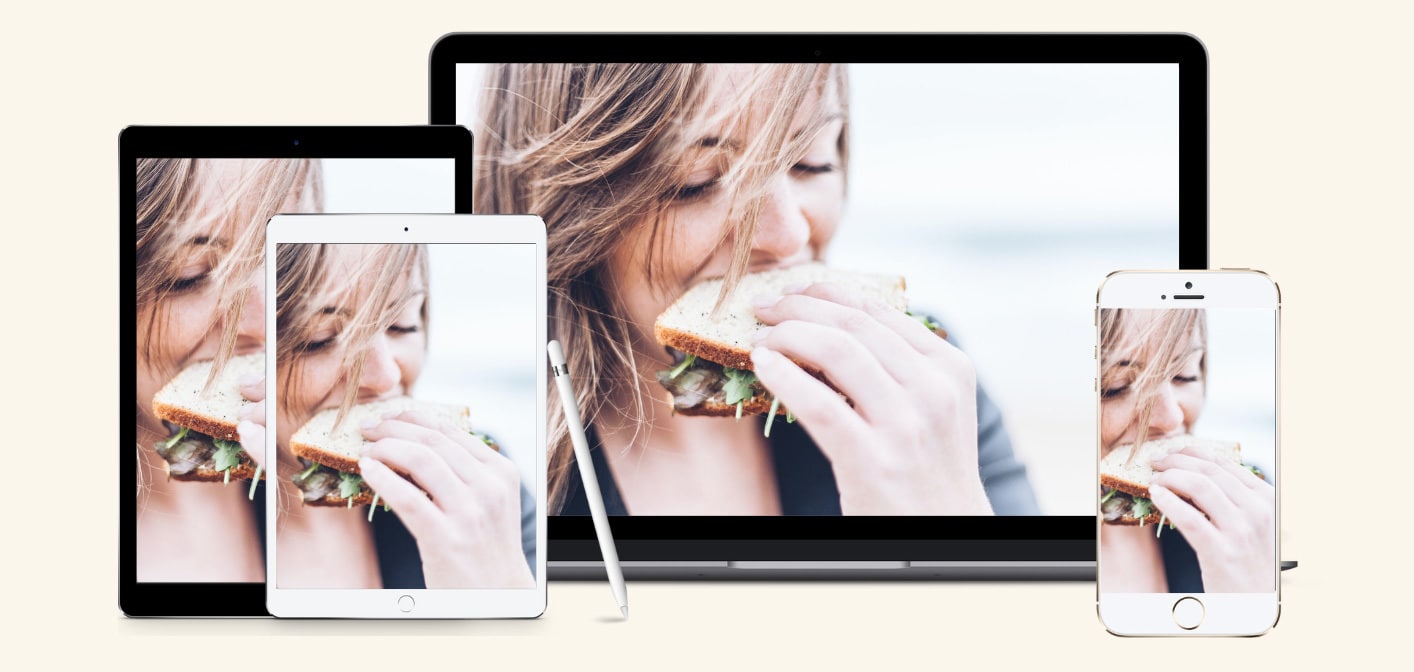The short answer: for most people, yes. But if that doesn’t feel true for you, you’re not alone. Many people worry that if they truly listened to their hunger, they would just eat and eat until they burst. If that’s you, this article is here to help.
Let’s explore how hunger works, why it can be hard to trust, and how you can start reconnecting with your body’s natural cues.
Why do we need hunger?
The simple answer: survival.
From the moment we’re born, hunger drives us to seek nourishment. A healthy baby instinctively suckles, drawn to the sweet and salty taste of milk. Hunger signals let us know that our body is running low on energy and needs fuel.
Here’s how it works: as your stomach empties, a hormone called ghrelin is produced in your gut. It travels to the hypothalamus in your brain, which regulates appetite, and signals that your energy is low. Ghrelin (and your appetite) will continue to rise until you eat.
We evolved this way for a reason. Hunger is a biological cue that helps keep us alive.
Infants are incredibly in tune with these signals. They cry when they’re hungry and turn away when they’re full. But as we grow older, we receive messages about food and our bodies that often teach us to override those natural cues.
Why Do We Stop Trusting Hunger?
Think about the common, well-meaning messages many of us heard as children:
- “Finish your vegetables before you can have pudding.”
This type of message can teach us to ignore fullness and eat past comfort to access the “fun” foods. Over time, this can snowball into a complicated relationship with food, rooted in diet culture.
We’re taught we can’t be trusted with food. That we need to follow external cues like portion sizes, points, calories, or fasting windows to eat correctly. It’s no wonder that so many people feel disconnected from their hunger.
If you feel like you can’t trust your hunger, you’re not broken. And you’re not alone.
With the right tools and practice, you can rebuild that trust and start eating in line with your body’s actual needs.
Why Hunger Can Feel Scary
If you’ve clicked on this article, chances are you’ve spent time ignoring or distrusting your hunger. Maybe it even feels unsafe or excessive.
Here are some common thoughts clients have shared:
“Trusting myself around food. Especially when alone and there are no limits. I am not in touch with what my body wants/needs.”
“The overload of available information on what I should or shouldn’t be eating, how I should or shouldn’t look. This means being constantly disciplined, thin, healthy, happy and IN CONTROL.”
“I don’t listen to my body. I eat what I think I must eat instead of what I want to eat.”
Often, we’re afraid of losing control or gaining weight. But many people actually find that when they consistently respond to hunger cues, they feel more in control, not less. Their eating becomes more balanced. Their weight often settles into a natural and healthy range (also known as your set point weight).
Want to hear directly from people who’ve experienced this? Check out videos and stories from clients who have rebuilt trust in their bodies here.
Consistently ignoring your hunger can cause problems
Diet culture teaches us to make food decisions from the head, not the body.
(a) “I can’t possibly be hungry. I just ate lunch a couple of hours ago. Ugh, why do I always feel hungry?”
(diet mindset: guilt, body distrust)
vs.
(b) “I’m noticing hunger despite eating a couple hours ago. Maybe my body needs more food today. I’ll get something to eat.”
(self-care mindset: curiosity, respect)
Over time, ignoring your hunger can lead to body distrust, disconnected eating, and increased risk of binge eating. But you can retrain yourself to listen again.
How Do I Learn to Trust Hunger Again?
One effective approach is Intuitive Eating.
This is an evidence-based framework that helps you rebuild trust with your body’s cues and break free from dieting. Intuitive Eating teaches you to:
- Eat in response to hunger and fullness
- Honour physical and emotional needs
- Ditch external rules like calorie counting and food moralising
Learn more about Intuitive Eating here.
It’s normal to lose touch with your hunger and fullness cues after years of dieting. But these signals don’t disappear — they just get quieter. You can learn to hear them again.
A great place to start is with this free guide to the key principles of Intuitive Eating.

The First Step: Reject Diet Culture
Step one of Intuitive Eating is to reject diet culture and the idea that your body needs fixing. This mindset shift helps you trust the process of reconnecting with hunger.
Read more about why diets don’t work and why letting go of them is essential for food freedom.
Because everyone’s starting point is different, it can be helpful to get support from a professional. A trained dietitian can tailor guidance to your unique needs and help fast-track your journey.
What If I’m in Recovery or Taking Medication?
There are situations where hunger signals might be unreliable:
- Eating disorder recovery: In early stages, the body may feel full prematurely due to slowed digestion. A structured approach may be needed first.
- Neurodivergence: Some neurodivergent individuals (such as those with ADHD or autism) may struggle to notice or interpret hunger and fullness cues due to sensory sensitivities, differences in interoception, or focus-related challenges. In these cases, a more intentional or scheduled approach to eating can help support nourishment.
- Medications: Some medications, such as antipsychotics, antidepressants, and corticosteroids, can increase appetite.
If you’re unsure whether medication or a condition is affecting your hunger, speak with your healthcare provider.
Does intuitive eating work?
Does Intuitive Eating Really Work?
We’ve answered that in more depth in this article.
Spoiler: it depends on your definition of “work.” If it means:
- Eating a varied, nourishing diet
- Feeling free around food
- Healing binge eating
- Boosting your self-esteem
…then yes, it works.
Ready to Reconnect With Hunger?
You’re not broken. You haven’t failed. You just need support to rediscover the cues that have always been there.
If you want to work with a qualified dietitian and Certified Intuitive Eating Counsellor, read more about what that looks like here.
There is freedom on the other side of fear. And it starts with learning to trust your body again.





